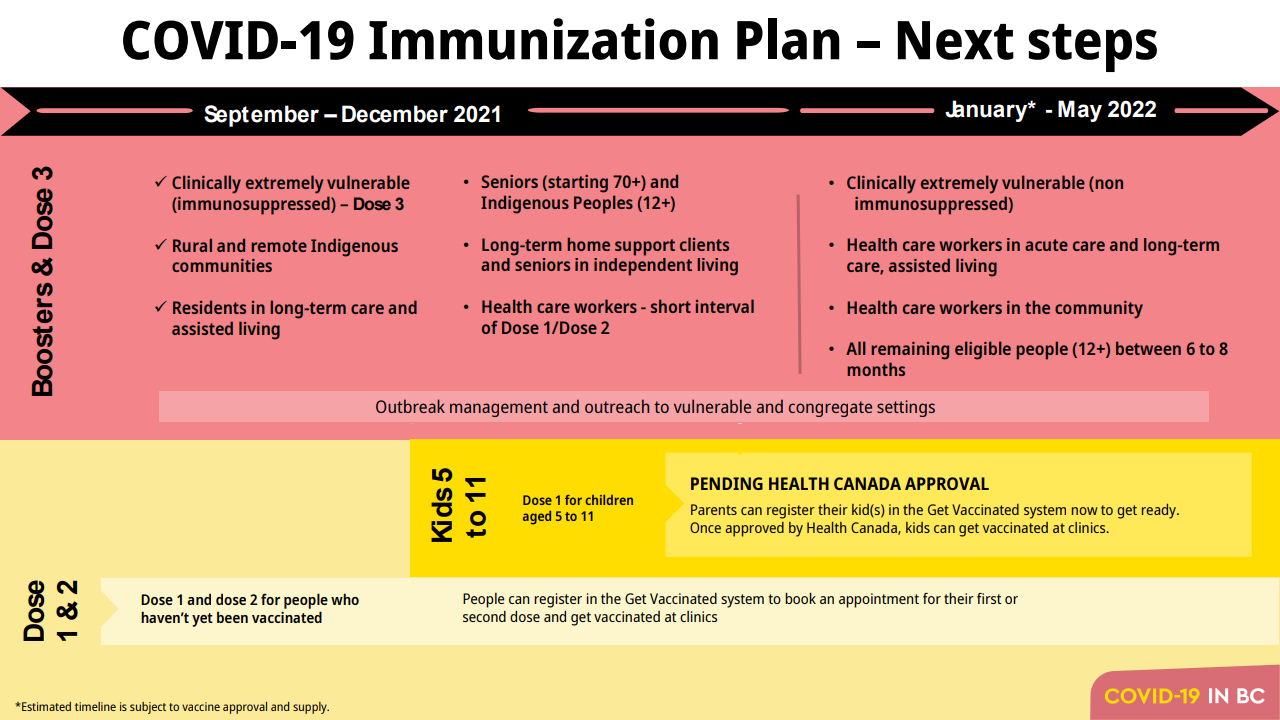
Public health opening up COVID-19 booster shots to more people province-wide
NANAIMO — B.C.’s vaccine program is expanding with third doses of approved COVID-19 vaccines to be offered for larger sections of the general public.
Beginning mid-January third doses, or booster shots will be widely available in a bid to further curb transmission rates of the virus, in particular the ultra-contagious Delta variant which is the dominant strain circulating in B.C.
Provincial health officer Dr. Bonnie Henry said boosters of Moderna and Pfizer will be available to more B.C. residents who have received two doses, with the rollout occurring in stages through the end of May 2022.
“It will be based on…important risk factors for decreased protection over time and risk for ending up with severe illness hospitalization or death.”



